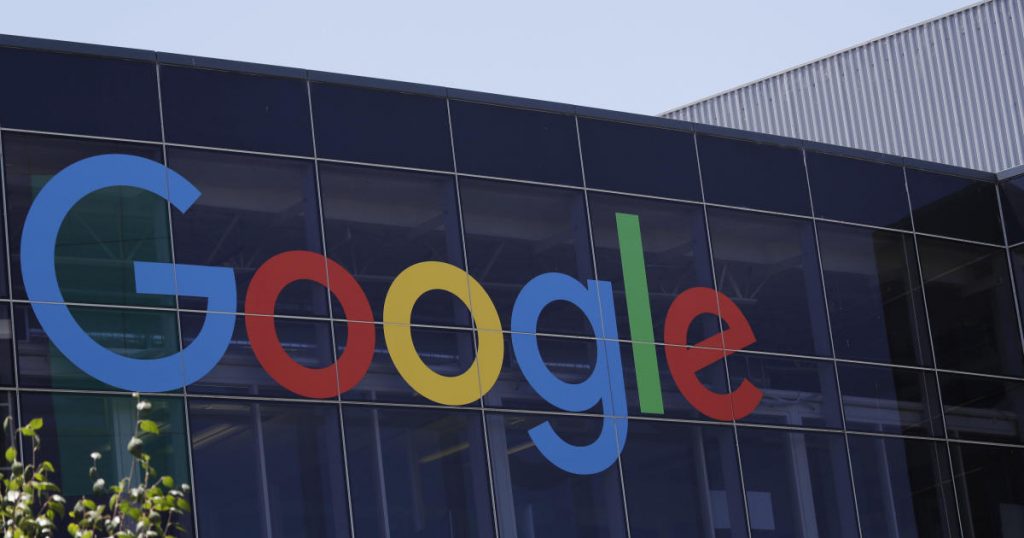
The Department of Justice filed its long-awaited antitrust lawsuit against Google on Tuesday alleging the company has unlawfully maintained a monopoly in search by cutting off rivals from key distribution channels.
Eleven Republican state attorneys general have joined the DOJ as plaintiffs in the case: Arkansas, Florida, Georgia, Indiana, Kentucky, Louisiana, Mississippi, Missouri, Montana, South Carolina and Texas.
Google’s stock barely moved following news of the suit. Shares remained slightly positive as of Tuesday morning, though they lost steam once the filing went public.
The DOJ and states are bringing the complaint under Section 2 of the Sherman Act, alleging Google has unlawfully maintained monopolies in markets for “general search services, search advertising, and general search text advertising,” according to the lawsuit. They claim Google has maintained its monopoly through “anticompetitive and exclusionary practices.”
Allegations against Google
The crux of the complaint is that Google has allegedly used its monopoly power to tie up distribution channels for online search and related markets. The Justice Department claims that Google has “foreclosed competition for internet search” through exclusionary agreements that deny rivals the opportunity to achieve the necessary scale to challenge its dominance.
DOJ claims Google holds 88% of the general search market in the U.S. with 94% of mobile searches occurring on its services. The department claims Google’s conduct has harmed consumers by lowering the quality of search services and reducing choice.
It also claims Google owns more than 70% of the search ads market and has used its alleged monopoly power to charge more for lower-quality services than would be possible in the face of competition, according to the suit.
According to the lawsuit, Google has used its monopoly power to keep competitors out of the search distribution channels they need to scale up. It claims Google has “locked up” distribution through allegedly exclusionary contracts with Apple and distributors of its Android mobile operating system. As a result, the lawsuit claims, Google has suppressed innovation in the search market.
One example of such allegedly exclusionary contract is the kind Google allegedly requires Android device manufacturers to sign. According to the lawsuit, Google requires phone manufacturers who use its operating system to agree to strict limits on their ability to sell Android devices that don’t comply with Google’s standards. It then gives the manufacturers access to its “vital proprietary apps” in exchange for their agreement to take several other Google apps and prevent users from being able to delete some of them.
The complaint alleges that Google has used its revenue sharing model for distributors to expand its dominance. One senior executive allegedly told enforcers that revenue sharing in Google’s app store “is a bitter pill for carriers, and a generous revenue share is the sugar that makes it go down smoother.”
Google’s revenue sharing agreements extend to rival browsers and device manufacturers, including Apple, according to the suit. Google reports traffic acquisition costs (TAC) in its quarterly financial filings that amount to billions of dollars. That figure represents the payments Google makes to companies like Apple to be the default search provider on their platforms. The suit says that as a practical matter, consumers largely do not shift away from default settings.
In the U.S., more than half of search queries are “covered by Google’s exclusionary agreements,” according to the lawsuit — 60% overall and 80% on mobile devices. Almost half of search queries aren’t covered by those contracts take place on “access points” owned by Google, like its Chrome browser and Pixel phones, DOJ alleges, giving it effective control of about 80% of general search queries in the U.S.
“Today’s lawsuit by the Department of Justice is deeply flawed,” a Google spokesperson said in a statement. “People use Google because they choose to — not because they’re forced to or because they can’t find alternatives. We will have a fuller statement this morning.”
The lawsuit is the culmination of a more than year-long investigation into the company’s business practices. It’s the most significant antitrust lawsuit since the Justice Department sued Microsoft in the 1990s alongside a coalition of state enforcers. Google was previously the subject of a U.S. antitrust investigation by the Federal Trade Commission over its search product, but the agency closed that probe in 2013 without charges. A leaked document published by The Wall Street Journal later showed staff had recommended bringing a case on several grounds.
State involvement
The DOJ lawsuit marks the first time a serious antitrust charge has been brought against Google on the federal level in its home country. Attorneys general from every state besides Alabama have also been probing Google’s practices. California’s attorney general has not confirmed its investigation, but Politico reported last month that the state had opened its own probe separate from the multistate effort led by Texas.
On a call with reporters Tuesday, DOJ officials said they continue to keep lines of communication open to states that had not initially joined the suit and said that those enforcers expressed broad support for the issues in the suit.
Several state attorneys general that did not join the DOJ lawsuit released a joint statement after the case was filed, saying they would join forces with the agency if they decide later to file a case.
“Over the last year, both the US DOJ and state attorneys general have conducted separate but parallel investigations into Google’s anticompetitive market behavior,” attorneys general from Iowa, Nebraska, Colorado, Tennessee, New York, North Carolina, and Utah said in the statement. “We appreciate the strong bipartisan cooperation among the states and the good working relationship with the DOJ on these serious issues. This is a historic time for both federal and state antitrust authorities, as we work to protect competition and innovation in our technology markets. We plan to conclude parts of our investigation of Google in the coming weeks. If we decide to file a complaint, we would file a motion to consolidate our case with the DOJ’s. We would then litigate the consolidated case cooperatively, much as we did in the Microsoft case.”
On the press call, DOJ Deputy Attorney General Jeffrey Rosen said the suit marked “a milestone but not a stopping point” in the agency’s review of digital platforms that began in 2019. He said the department would continue to look into dominant internet platforms for potential misconduct.
This story is developing. Check back for updates.

